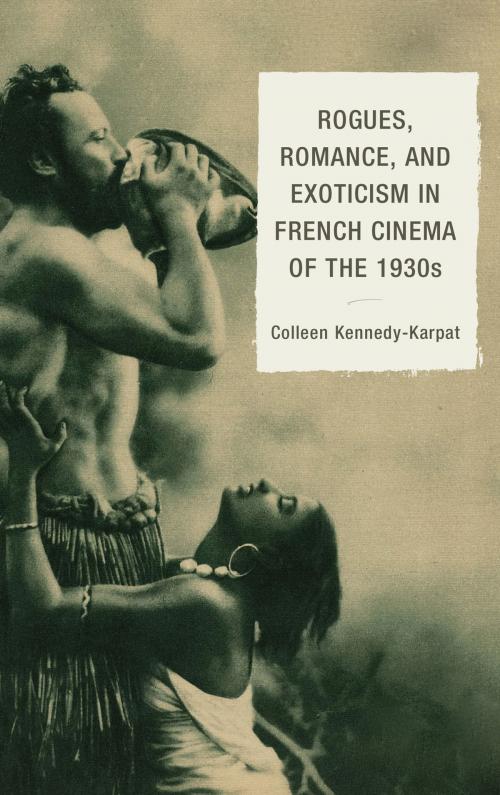Rogues, Romance, and Exoticism in French Cinema of the 1930s
Nonfiction, Entertainment, Film, History & Criticism, Performing Arts, History, France| Author: | Colleen Kennedy-Karpat | ISBN: | 9781611476149 |
| Publisher: | Fairleigh Dickinson University Press | Publication: | April 11, 2013 |
| Imprint: | Fairleigh Dickinson University Press | Language: | English |
| Author: | Colleen Kennedy-Karpat |
| ISBN: | 9781611476149 |
| Publisher: | Fairleigh Dickinson University Press |
| Publication: | April 11, 2013 |
| Imprint: | Fairleigh Dickinson University Press |
| Language: | English |
Many popular French films of the 1930s captured the world and brought it into neighborhood cinemas for filmgoers who craved adventure. These films often served as visual postcards from the French empire, which enjoyed an unprecedented visibility in domestic popular culture between the world wars. But the public appetite for the exotic also transcended imperial borders. Exoticist films displayed landscapes and different that lay beyond the metropole, many of which were not subject to European rule. This broad conception of the exotic meant that French narrative cinema represented both colonial and non-colonial settings and populations, developing a coherent set of tropes that were shaped, yet not entirely defined, by the politics of imperial rule.
Empire alone cannot address the full range of the French exoticist imaginary that was projected onto movie screens in the 30s. Only by venturing beyond imperial boundaries can we fully understand how the French saw non-Westerners and, by extension, how they saw themselves during this tumultuous decade. Rogues, Romance, and Exoticism in French Cinema of the 1930s proposes a critical framework for exoticist cinema that includes and exceeds the limits of empire. From rogue colons to the métisse in love, from the deserts of North Africa to the streets of Shanghai, this book identifies and analyzes recurring figures, common settings, major stars, plot devices, and narrative outcomes that dominated exoticist cinema at its popular peak.
Many popular French films of the 1930s captured the world and brought it into neighborhood cinemas for filmgoers who craved adventure. These films often served as visual postcards from the French empire, which enjoyed an unprecedented visibility in domestic popular culture between the world wars. But the public appetite for the exotic also transcended imperial borders. Exoticist films displayed landscapes and different that lay beyond the metropole, many of which were not subject to European rule. This broad conception of the exotic meant that French narrative cinema represented both colonial and non-colonial settings and populations, developing a coherent set of tropes that were shaped, yet not entirely defined, by the politics of imperial rule.
Empire alone cannot address the full range of the French exoticist imaginary that was projected onto movie screens in the 30s. Only by venturing beyond imperial boundaries can we fully understand how the French saw non-Westerners and, by extension, how they saw themselves during this tumultuous decade. Rogues, Romance, and Exoticism in French Cinema of the 1930s proposes a critical framework for exoticist cinema that includes and exceeds the limits of empire. From rogue colons to the métisse in love, from the deserts of North Africa to the streets of Shanghai, this book identifies and analyzes recurring figures, common settings, major stars, plot devices, and narrative outcomes that dominated exoticist cinema at its popular peak.















